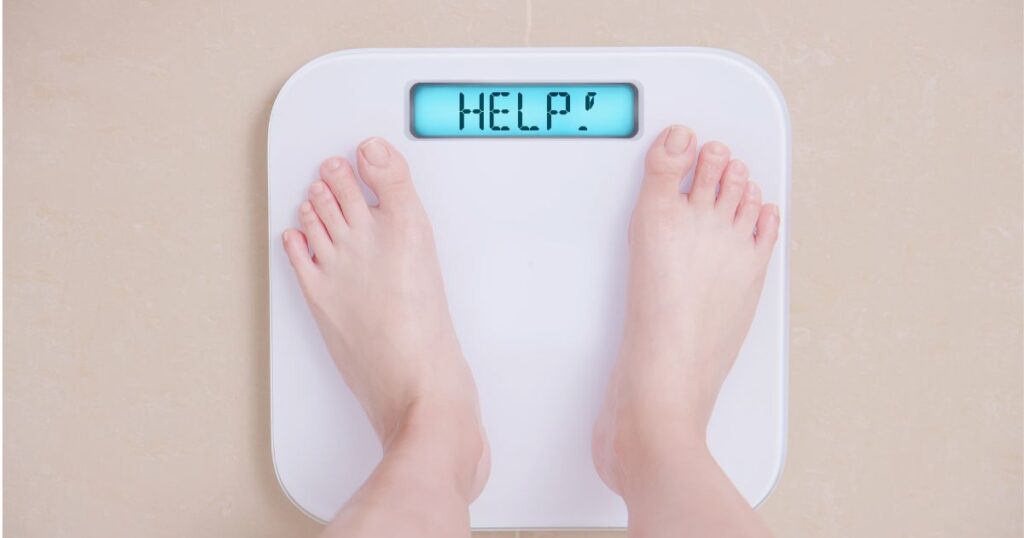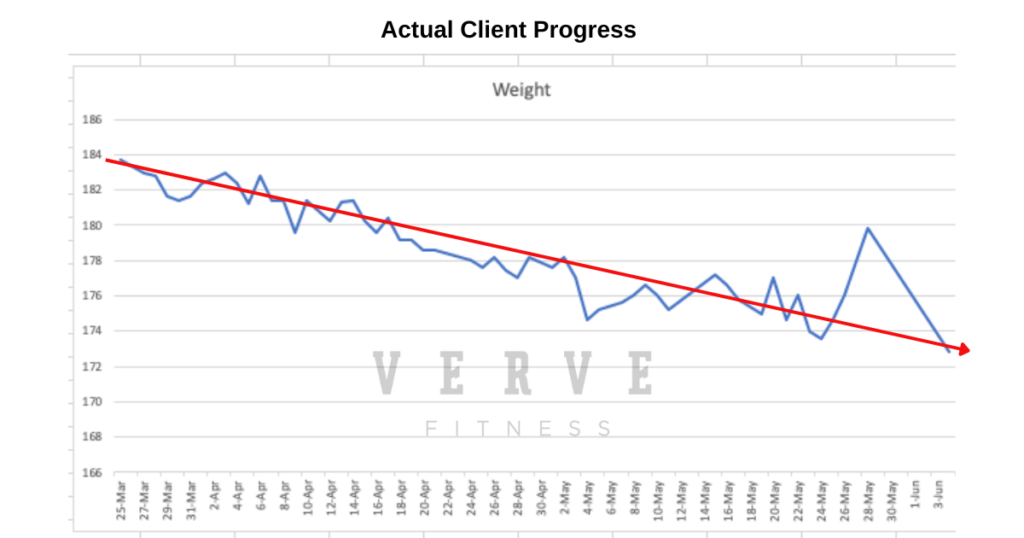
In our pursuit of fat loss and muscle gain, it’s natural to focus on the scale as the primary measure of progress. However, it can be disheartening to see little to no weight loss, or even slight increases, despite our best efforts. In this post, we’ll explore the reasons behind these weight fluctuations and understand that the scale doesn’t always tell the whole story.
- Water Intake and Retention: The most apparent cause of daily weight fluctuations is water. Our bodies are constantly adjusting fluid levels due to various factors such as sodium intake, glycogen storage, and hormonal changes. Caffeine, alcohol, and diuretics can increase fluid excretion, while workouts, sleep, supplements, and muscle soreness impact water retention.
- Sodium and Its Impact: Sodium is essential for our health, particularly when we’re active, but excessive consumption can lead to bloating and weight gain (not necessarily fat gain – it is important to call out the difference between these two). Restaurant meals, often high in salt, may cause temporary water retention. Striking a balance with whole, unprocessed foods and staying well-hydrated can help mitigate these effects.
- Sleep’s Influence: Getting enough quality sleep not only aids in weight loss by regulating hunger hormones, insulin, and cortisol levels but can also lead to a temporary reduction in morning weight due to fluid shifts. Aim for 7-9 hours of restful sleep per night to support your weight loss goals.
- Fiber and Its Impact on Bloating: Increasing fiber intake through vegetables may cause temporary water retention, resulting in a bloated feeling. Nonetheless, don’t shy away from fiber as it plays a crucial role in weight loss, blood sugar control, and digestive health. Ensure you stay well-hydrated to reduce bloating and promote healthy digestion.
- Understanding Glycogen Storage: Glycogen serves as stored energy in our bodies and is mainly found in the liver, muscle tissue, and fat cells. Each gram of glycogen holds onto 2-3 grams of water, leading to rapid weight loss in very low-carb diets. Remember that weight fluctuations after high-carb meals are likely due to water retention, not fat gain.
- Inflammation and Muscle Soreness: Intense workouts and even sunburns can trigger water retention as the body uses water to heal and soothe inflamed muscles. This temporary weight fluctuation shouldn’t be a cause for concern and is just your body doing its job.
- Hormonal Shifts for Women: Ladies, hormonal shifts related to the menstrual cycle can lead to water retention about a week before menstruation. A low-sodium diet, adequate fiber intake, and staying hydrated can help alleviate bloating during this time.
- Embracing Muscle Growth: Regular exercise can lead to an increase in lean muscle mass, which might slow down weight loss progress (not fat loss progress) but ha a positive impact on physique and metabolism. Consider using InBody scans to measure fat loss and total lean body mass for a more comprehensive assessment.
It is important to remember that 1-2 lbs a week, on average and depending on how much you have to lose, is great progress towards weight loss. If you lose more than a pound or two in a week it is probably due to the loss of water in your body, not necessarily fat. This is why sometimes the loss of 5lbs in a week may be achievable but most likely not sustainable over time.

Instead of solely relying on the scale to gauge your fat loss journey, consider the various factors that can affect daily weight fluctuations. Weight changes are a normal part of the process. If the scale affects your mood negatively, it’s perfectly fine to stop using it as your primary progress tracker. If you want a deeper dive into your progress, an InBody Scan is a great way to get more detailed information. Remember, your efforts are making a difference, and consistency is key on this transformative journey.
If you’re facing challenges and not seeing the results you had hoped for, it might be the perfect time to seek professional guidance. Consider enlisting the help of a certified nutrition coach who can provide personalized support and expert advice. Your first consultation with our nutrition coach is free. You can schedule your consultation by sending an email to [email protected].
